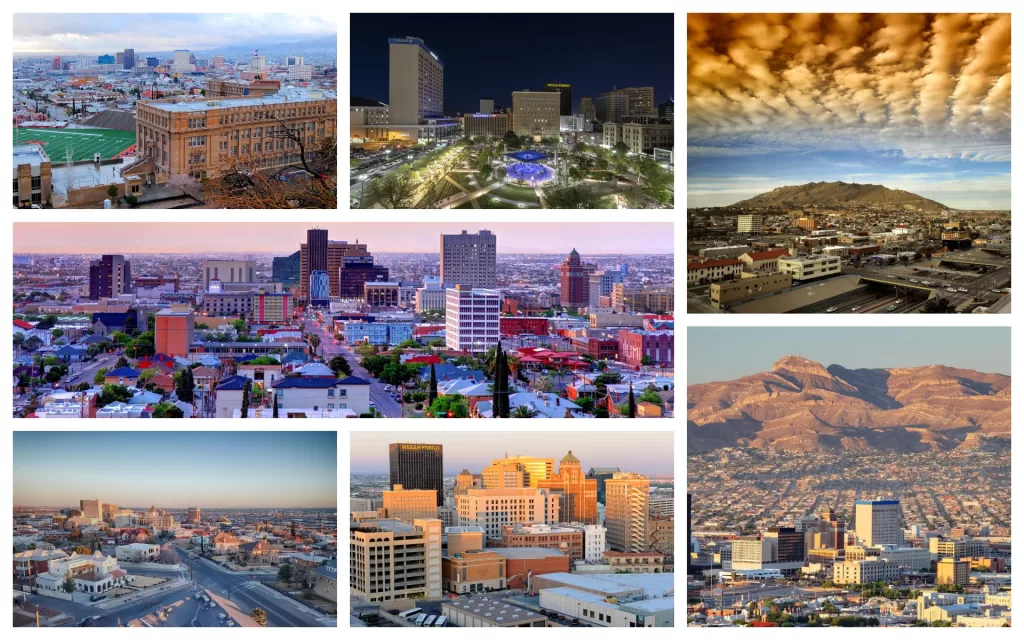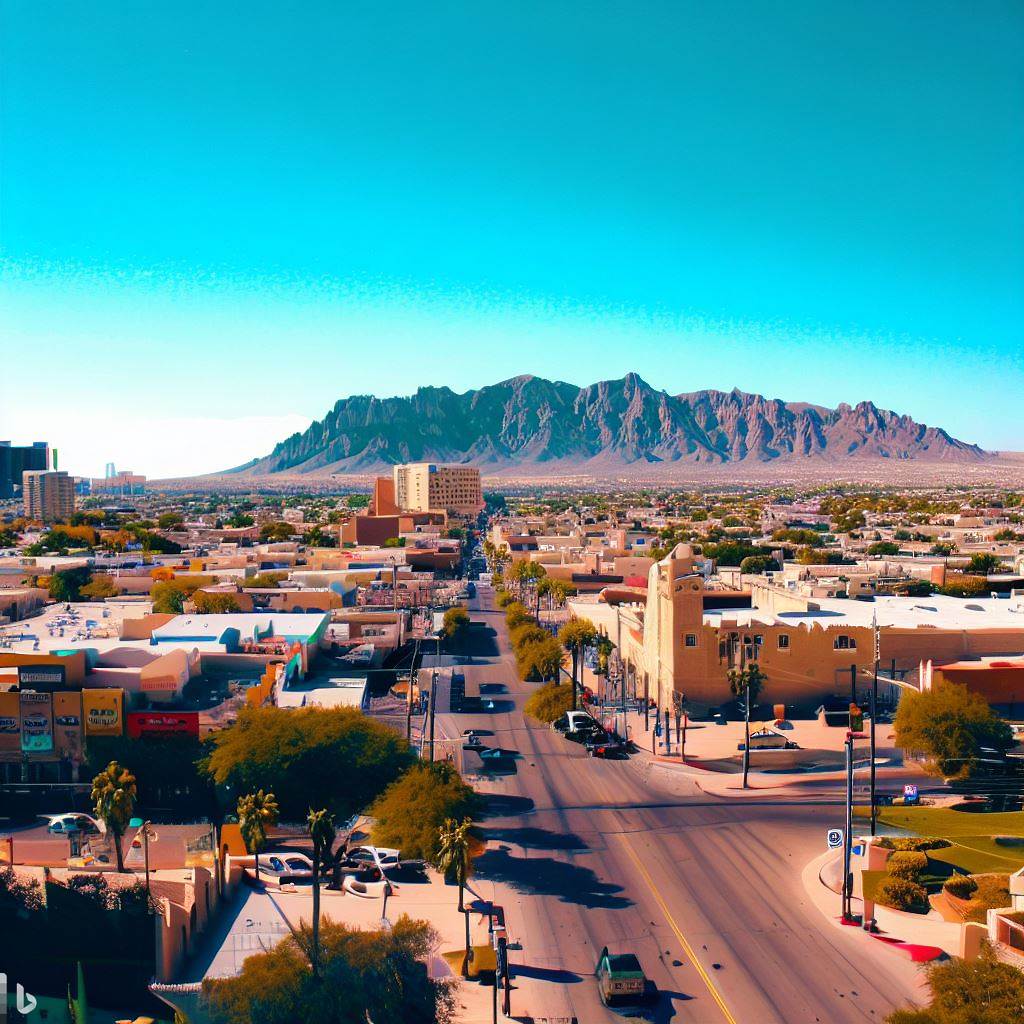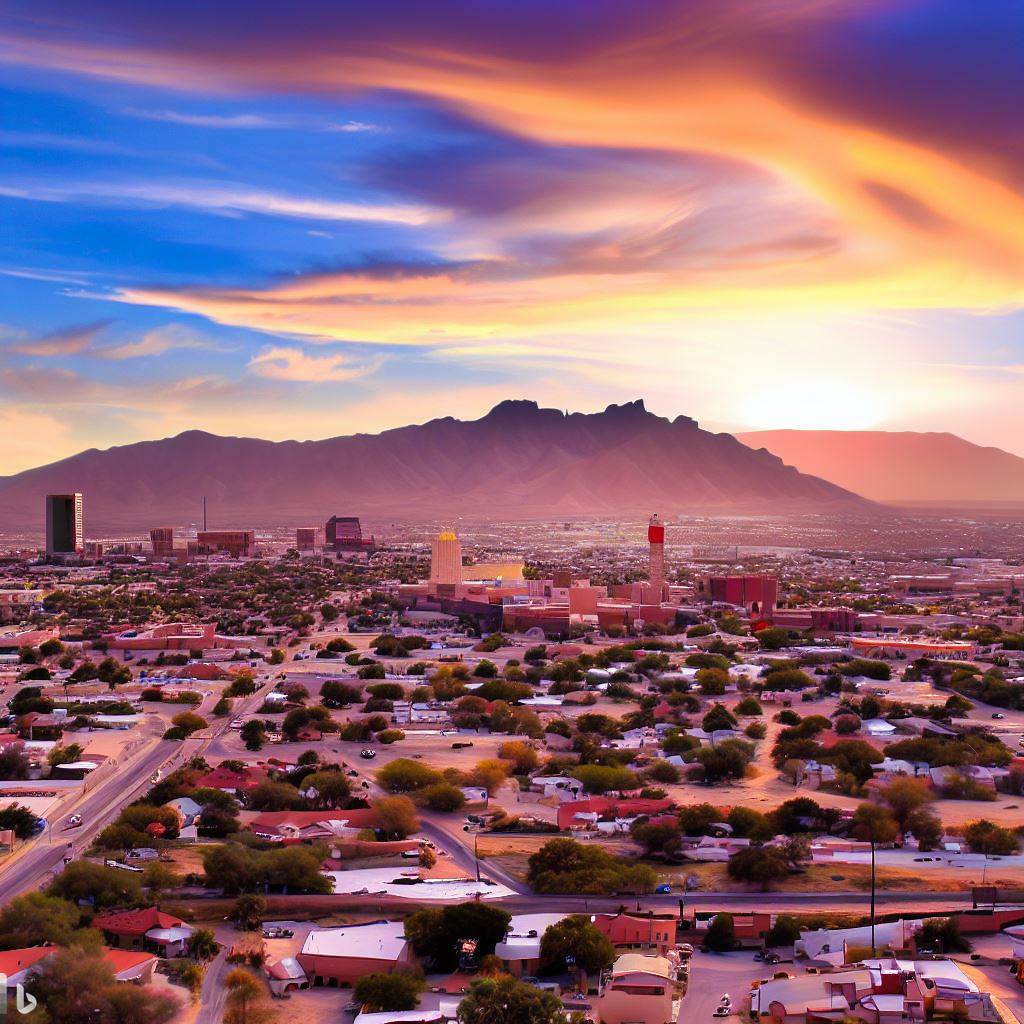El Paso, TX is a city in El Paso County. It is on the western edge of Texas. It is the 23rd biggest city in the United States and the sixth largest in Texas. El Paso is a great place to live because it has a unique mix of countries, a low cost of living, and lots of things to do outside.But there are also things to think about, like the harsh desert temperature and the fact that it’s hard to get to some amenities.In the end, each person will have to decide for themselves if El Paso is a good place to live or not.

Like any location, whether El Paso, Texas, is a good place to live depends on individual preferences, lifestyle, and needs. However, here are a few aspects of El Paso that people commonly evaluate when considering it as a place to live:
- Climate: El Paso is in the Chihuahuan Desert, and it has a hot desert climate. If you enjoy lots of sunshine and warm weather, this could be a plus. However, if you prefer cooler, more temperate climates, it might not be ideal.
- Cost of Living: Generally, the cost of living in El Paso is lower than the national average, which can be beneficial, particularly when it comes to housing costs.
- Outdoor Activities: There are many opportunities for outdoor activities, with access to national parks, hiking trails, and other natural features. Franklin Mountains State Park is right in the city and is the largest urban park in the nation lying entirely within city limits.
- Safety: According to statistics, the crime rate in El Paso is relatively low for a city of its size.
- Cultural Diversity: El Paso has a rich cultural history and diversity, with a strong Mexican-American heritage. This is reflected in the local food, art, and community events.
- Job Market: The city has a diverse economy with opportunities in healthcare, education, military, and trade sectors. However, it’s always wise to secure employment before moving.
- Education: El Paso has a number of public and private schools, and it’s also home to the University of Texas at El Paso.
However, there may also be drawbacks. Although there is a lot of local culture to explore, some visitors may find the city to be lacking in the diversity of cultural organizations, shopping, and entertainment opportunities that they’re used to in larger urban centers.
Before making a decision, it would be beneficial to visit the city and get a feel for it personally. Each individual’s preferences and lifestyle needs can greatly influence their perspective on what makes a place “good” to live in.


Pros & Cons
El Paso is a city with a unique blend of cultures, affordable cost of living, and proximity to nature. However, it also has some potential drawbacks, such as heat index, isolated location, and traffic. Here are some pros and cons of living in El Paso based on the search results:
Pros:
- Affordable living: El Paso has significantly lower housing costs and overall expenses than other major metropolitan areas in Texas. The average home price is $127K and the average rent is $837 per month.
- Strong economy: El Paso is home to several major employers, including Fort Bliss, Texas Tech University Health Sciences Center, and the University of Texas at El Paso. The city also has a thriving healthcare industry and a hub for international trade². The unemployment rate is low and there are a variety of job opportunities.
- Proximity to nature: El Paso is located near the Franklin Mountains, which offer a variety of opportunities for hiking, biking, and other outdoor activities¹². The city also sees more sunshine than most other areas and has nicknamed it Sun City.
- Arts and culture: El Paso has a thriving arts and culture scene, with numerous museums, galleries, and theaters throughout the area². Some local favorites include the El Paso Museum of Art, the Flor de Barro Gallery, and the Plaza Theatre.
- Friendly community: El Paso has a sense of community, with friendly, welcoming, and supportive people². There are plenty of local events and festivals to connect with your fellow El Pasoans and build lasting relationships.
- Safe: El Paso is one of the safest cities in Texas. The crime rate is low and the schools are highly rated.
- Affordable: El Paso is an affordable city to live in. The cost of housing is lower than in many other parts of Texas.
- Family-friendly: El Paso is a great place to raise a family. There are many parks, playgrounds, and other activities for children. The schools are also highly rated.
- Diverse population: El Paso is a diverse community with people from all walks of life. This makes for a vibrant and interesting community.
- Amenities: El Paso has a variety of amenities, including parks, schools, shopping, and restaurants. This makes it a convenient place to live.
- Location: El Paso is located near the Mexican border, which offers residents the opportunity to experience a different culture.
Cons:
- Heat index: El Paso can get very hot in the summer, with temperatures reaching over 100°F (38°C). The city also has a low humidity level, which can make the heat feel more intense. You may need to invest in air conditioning and stay hydrated to cope with the heat.
- Isolated location: El Paso is located on the southwestern border of Texas, which means that it is far away from other major cities in the state¹. The nearest big city is San Antonio, which is about 550 miles (885 km) away¹. If you want to travel to other places, you may need to drive for a long time or take a flight.
- Traffic: El Paso can have traffic congestion during peak hours, especially on the I-10 freeway that runs through the city. The city also has limited public transportation options, which means that you may need to rely on your own car to get around¹. You may need to plan ahead and leave early to avoid traffic delays.
- Weather: El Paso has a hot, dry climate. The summers can be very hot and the winters can be very cold.Traffic: Traffic can be heavy in El Paso, especially during rush hour.Job opportunities: The job market in El Paso is not as strong as in some other parts of Texas.
What is it like living in El Paso Texas?
Many people find it worthwhile to make El Paso their permanent home. Culture, business, and the great outdoors are all well represented in the city. However, there are several difficulties that you should consider carefully before relocating. Some features of El Paso life include the following:
Culture: El Paso has a unique blend of cultures, with influences from Mexico, Native American tribes, and the Southwest. The city is home to a thriving arts and culture scene, with numerous museums, galleries, and theaters throughout the area. Some local favorites include the El Paso Museum of Art, the Flor de Barro Gallery, and the Plaza Theatre. You can also enjoy festivals like the Plaza Classic Film Festival and the Sun City Music Festival.
Economy: El Paso has a strong economy, with a low unemployment rate and a variety of job opportunities. El Paso is home to several major employers, including Fort Bliss, Texas Tech University Health Sciences Center, and the University of Texas at El Paso. The city also has a thriving healthcare industry and a hub for international trade. The cost of living in El Paso is significantly lower than other major metropolitan areas in Texas, with affordable housing and overall expenses.
Nature: El Paso is a great place for outdoor enthusiasts, with its location near the Franklin Mountains and the Rio Grande. You can enjoy hiking, biking, rock climbing, whitewater rafting, canoeing, and fishing in and around El Paso. The city also sees more sunshine than most other areas and has nicknamed it Sun City. You can take advantage of the sunny weather and explore the natural beauty of El Paso.
Challenges: There are several drawbacks to El Paso that you should think about before making the move there. In the summer, the heat index can reach dangerously high levels. Low humidity can make temperatures of over 100 degrees Fahrenheit (38 degrees Celsius) feel even hotter. To beat the heat, you should drink enough of water and consider installing air conditioning. El Paso’s distance from Texas’s other major cities presents another difficulty. San Antonio is around 550 miles (885 km) distant, making it the closest major city. You might have to put in a lot of miles on the road or hop on a plane if you want to see the world. Congestion on the I-10 motorway, which cuts through the heart of El Paso, is a third difficulty the city faces. The city’s public transit system is underdeveloped, so you might require a car to get about. It’s possible that you’ll need to depart early and prepare for traffic.
Is El Paso, TX expensive?
The cost of living in El Paso, TX is lower than the national average and most other cities in Texas. The main factors that contribute to the lower cost are housing, transportation, food, and healthcare. For example, the median home cost in El Paso is $195,600, while the national average is $338,100. The average rent for a one-bedroom apartment in El Paso is $750, while the national average is $1,200. However, the cost of living in El Paso may still be too high for some people, especially those who earn the minimum wage of $7.25 per hour, which is the same as the federal minimum wage and has not changed since 2009.